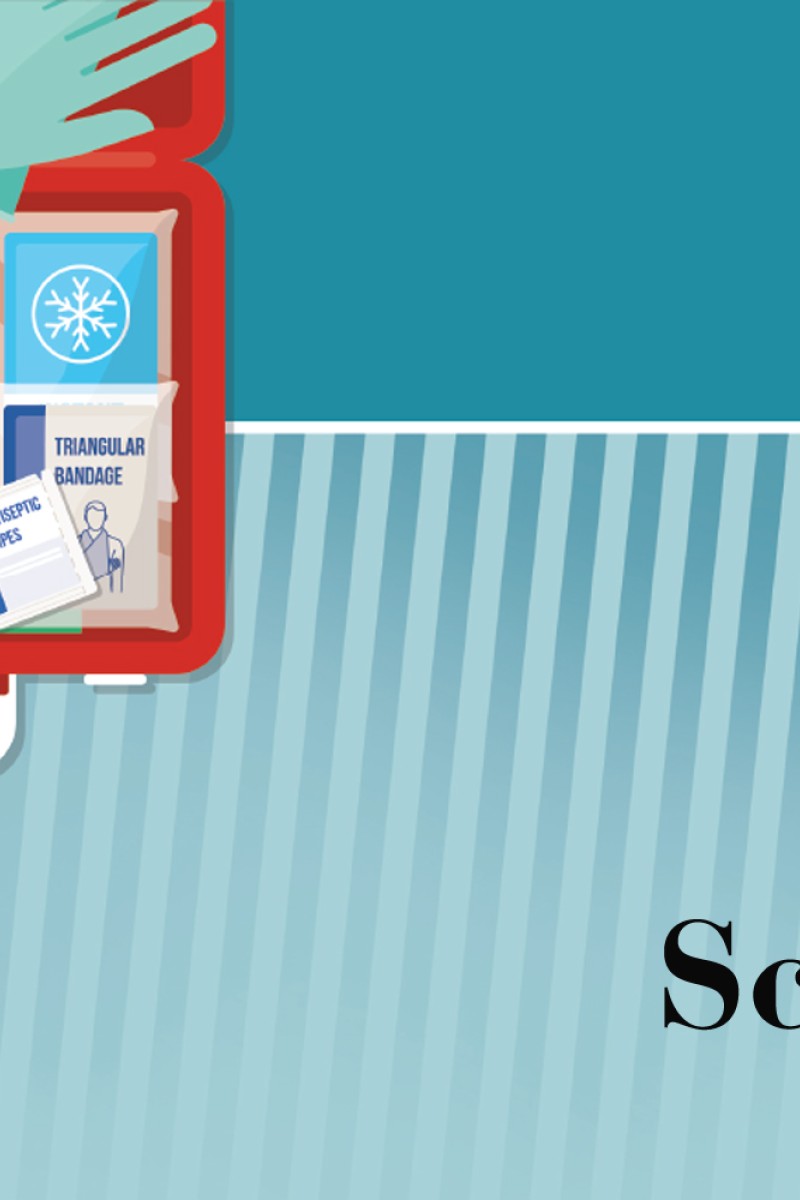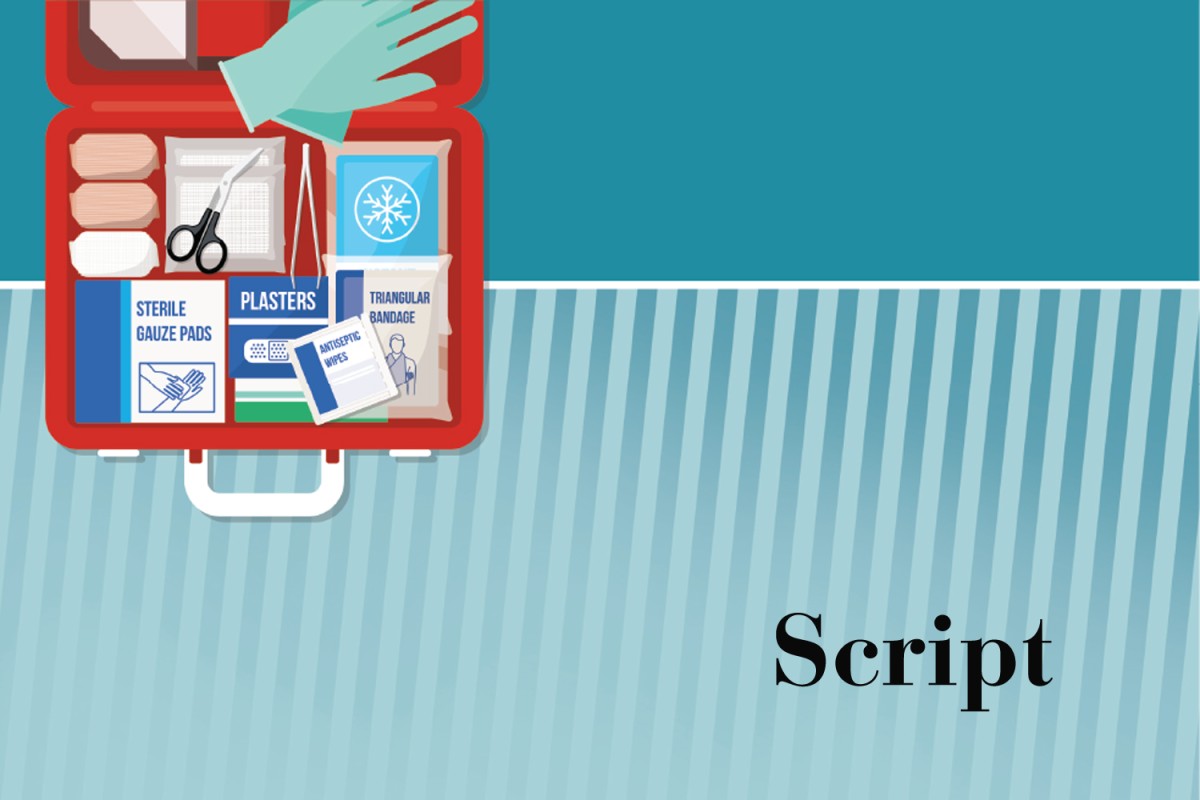
Simon’s boss suggested that he attend a first aid course, as it might come in useful at work. The boss thought it was important that someone in the company know what to do if anyone became ill or had an accident at work.

Amy: Ok guys, I hope you felt you learned a lot yesterday. For our second day together today, we’ll look at some common emergencies. There will be an exam on our last day tomorrow! First, nosebleed. As soon as you are called to attend to someone having a nosebleed, make sure they are sitting down.
Simon: Wouldn't lying down on the floor be better?
Amy: No! I said sitting - and that’s what I meant. The patient must be sitting in a chair or on a stool leaning forward. Wow, you’re a pain in the neck, Simon! You’ll need a towel, so it is important to keep a pile in the cupboard for emergencies such as this. Then quickly put on a pair of surgical gloves.
Simon: I never wear gloves. My hands get too hot, so I’ll skip that bit.
Amy: You’re not wearing them for your own comfort! You are wearing them for protection. This is essential.
Simon: Okay. Surgical gloves.
Amy: Drape the towels round the patient’s shoulders and chest, and make sure they tilt their head forward.
Simon: Wouldn't it be more sensible for them to tilt their head backwards? Stop the blood pouring out?
Amy: Which part of the word ‘forward’ do you not understand? The head must be tilted forward to allow the blood to drain from the nose, and avoid the patient swallowing blood.
Simon: I thought we were trying to stop the nosebleed?
Amy: That’s what we are doing! Could you please just listen and then ask questions when I’ve finished.
Simon: Sorry!
Amy: Tell the patient to breathe through their mouth and instruct them to pinch the soft part of the nose.
Simon: Shouldn’t the first-aider pinch the patient’s nose?
Amy: No! The patient can do this for themselves. Tell him or her to pinch firmly, and not to speak, cough, or sniff.
Simon: Why?
Amy: Because these actions will disturb any blood clots that have formed in the nose.
Simon: And this wouldn’t be good?
Amy: No! Watch the patient carefully, and after ten minutes tell him or her to release the pressure on the nose.
Simon: What if the bleeding hasn’t stopped?
Amy: I’m just coming to that. If the bleeding hasn’t stopped, tell the patient to pinch their nose again for a further ten minutes. If it still hasn’t stopped after 20 minutes, call 999. Most patients will be fine by this point.
Simon: Noted!
Amy: Once the bleeding has stopped, and with the patient still leaning forward, clean around the nose and mouth area with wet tissues or antiseptic wipes from your first aid cupboard. Remove the towels, put them in a plastic bag and throw it away.
Simon: What about the gloves? Can they be reused?
Amy: Certainly not! It’s essential to burn any medical waste. Take them off, tie them in a plastic bag, and dispose of them. Then wash your hands thoroughly. Now, advise the person to just to sit quietly for an hour or so. Tell them not to blow their nose, even though they will feel like they want to.
Simon: Should the boss send them home for the rest of the day?
Amy: That’s up to the patient and the boss to work out. People usually recover quickly from a nosebleed. It’s only usually when it starts that patients get panicky. Would you like me to go over any of it again? Or shall we move on?